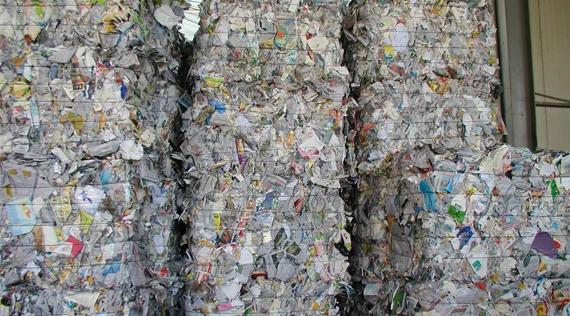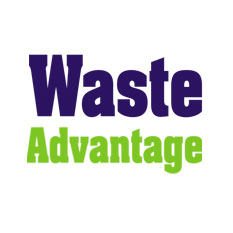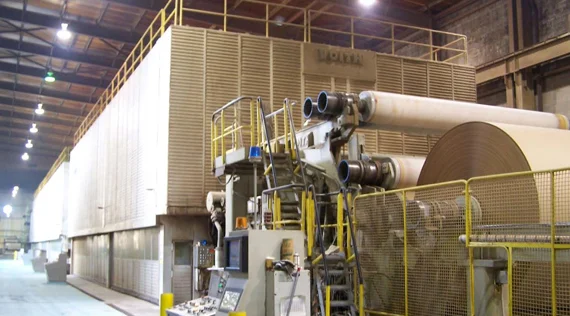Looming Chinese Import Ban Creates U.S. Recycling Bottleneck
September 18, 2017 08:30:11 AM
China is by far the biggest importer of U.S. recyclables, but part of that market is about to close.

SEATTLE (Waste Advantage): It soon could become much harder for recycling centers across the U.S. to turn a profit, and some instead could divert reusable materials to landfills, thanks to a looming Chinese import ban on certain types of recycled materials.
China is by far the biggest importer of U.S. recyclables, but part of that market is about to close: The Chinese Ministry of Environmental Protection (MEP) notified the World Trade Organization in July that it would ban imports of certain types of recycled plastic and fiber, including soda bottles, mixed paper and newsprint.
The announcement bans imports of 24 types of recycled materials including various plastics ( PET, PE, PVC and PS), as well as unsorted mixed paper, textiles, and some trace metals. And according to Beijing, starting in January every waste container entering China is to be inspected for contaminated materials.
The news has immediate implications for the domestic recycling supply chain in the U.S., stretching all the way back to the curbside recycling programs that have become popular in cities and towns.
“It could have a negative impact on recycling in general, as the system has relied on China for so long now,” said Brent Bell, vice president of recycling for Waste Management, the largest waste-service provider in the U.S. If the Chinese market is no-longer available, some experts question whether U.S. municipal recycling programs can remain viable, or if many of the products now considered “recyclable” will be reclassified as garbage bound for landfills. Other experts, however, say only a short-term disruption is likely.
The Trump administration has pledged to raise concerns with China’s government about the import restrictions, Adina Adler, senior director of international relations at the Institute for Scrap Recycling Industries (ISRI), told Bloomberg BNA.
Adler described the potential engagement as “still evolving,” with the hope that China will be open to other methods of meeting its goals to protect the environment.
End of Single-Stream Recycling?
The WTO filing mentions an “entry into force” starting in September, with the full ban likely taking place by the end of the year. In practice, this has given the U.S. industry very little time to adapt, with significant implications being been felt up and down the supply chain for recycled materials.
“There’s already been a lack of renewals in export licensing,” said Marc Forman, president of GP Harmon Recycling, a division of Georgia-Pacific that purchases and sells recycled fiber. “There is lots of uncertainty out there. If you have a contract to export a million pounds of paper this year, and you know it could be 500,000 next year, you’re already having to make tough decisions.”
Scrap industry groups claim that China’s new import quality standards are strict to the point of being essentially unworkable for products such as mixed paper, and polyethylene terephthalate (PET) plastic bottles, both of which are big components of curbside recycling streams.
Chinese rules now state that mixed-paper bales may contain no more than 2 percent of non-recyclable material. But the new standard will drop that limit to 0.3 percent.
“That will cause the mixed-paper market to crash,” said Bill Moore of Moore & Associates, a consultancy for the paper industry.
The largest source of mixed-paper is residentially collected recycling. If those materials aren’t being exported to China, waste collectors worry the U.S. may soon have paper and plastic piling up around the country.
Courtesy: https://wasteadvantagemag.com
Scrap Metal Prices
| Copper Scrap | |
| Alternator | 0.41 (0.01) |
| #1 Copper Bare Bright | 4.46 (0.16) |
| Aluminum Scrap | |
| 356 Aluminum Wheels (Clean) | 0.81 (0) |
| 6061 Extrusions | 0.71 (0) |
| Steel Scrap | |
| #1 Bundle | 390.00 (0) |
| #1 Busheling | 410.00 (0) |
| Electronics Scrap | |
 By
By 



